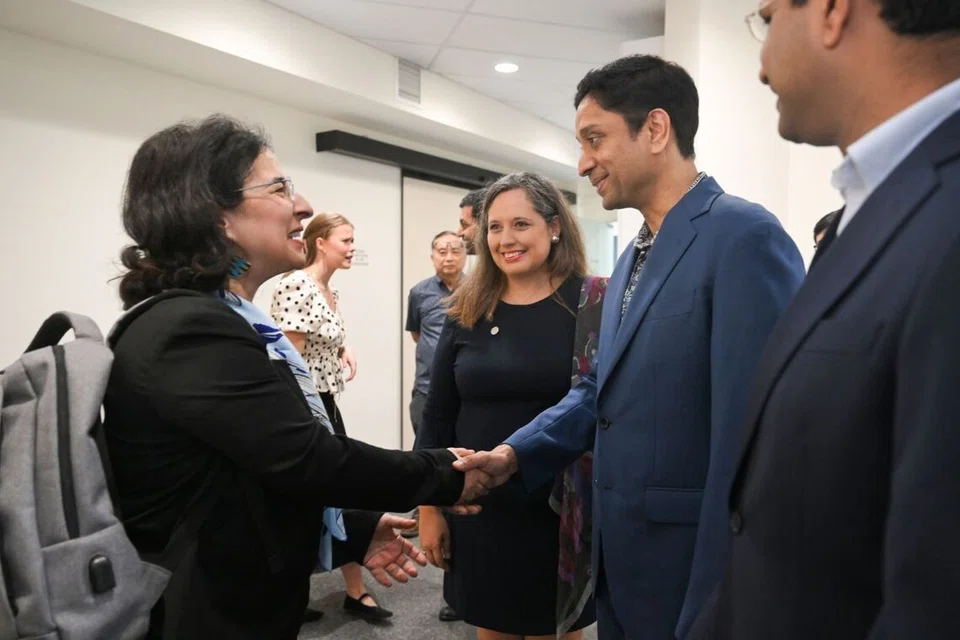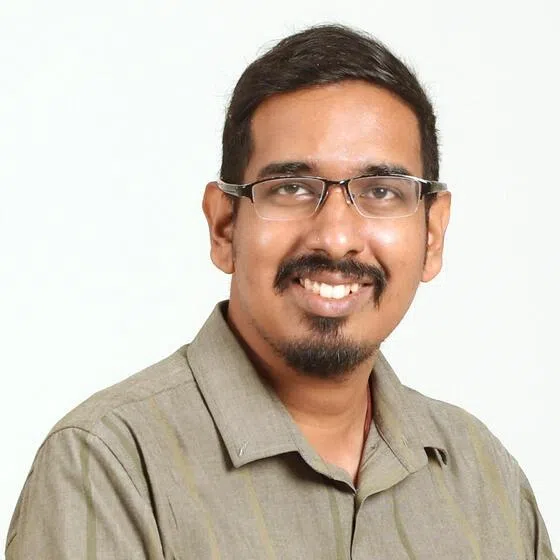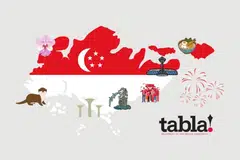The rise of extreme ideologies and the trend of multiculturalism retreating in various parts of the world is something that should be closely watched and studied, said Minister of State for Culture, Community and Youth, and Manpower Dinesh Vasu Dash.
“We have something good going on in the eastern part of the world, particularly in Southeast Asia. These countries are young and have dynamic economies. But we have to watch for the future as to what we need to do to prevent ourselves from fraying as well,” Mr Dinesh noted.
Mr Dinesh was speaking at the opening of the International Panel of Parliamentarians for Freedom of Religion or Belief (IPPFoRB) Regional Academy at its Asia Pacific Edition.
Held on Nov 23 at the Harmony Diversity Gallery, the meeting gathered 15 parliamentarians from ASEAN countries. The meeting aimed to deepen their understanding of freedom of religion and belief as well as equip them with practical tools to promote peaceful coexistence through legislative action.
Representing Singapore, Ms Hazlina Abdul Halim, Member of Parliament for East Coast GRC (Fengshan), and Ms Elysa Chen Shiyun, Member of Parliament for Bishan–Toa Payoh GRC (Bishan East–Sin Ming) participated in the event.
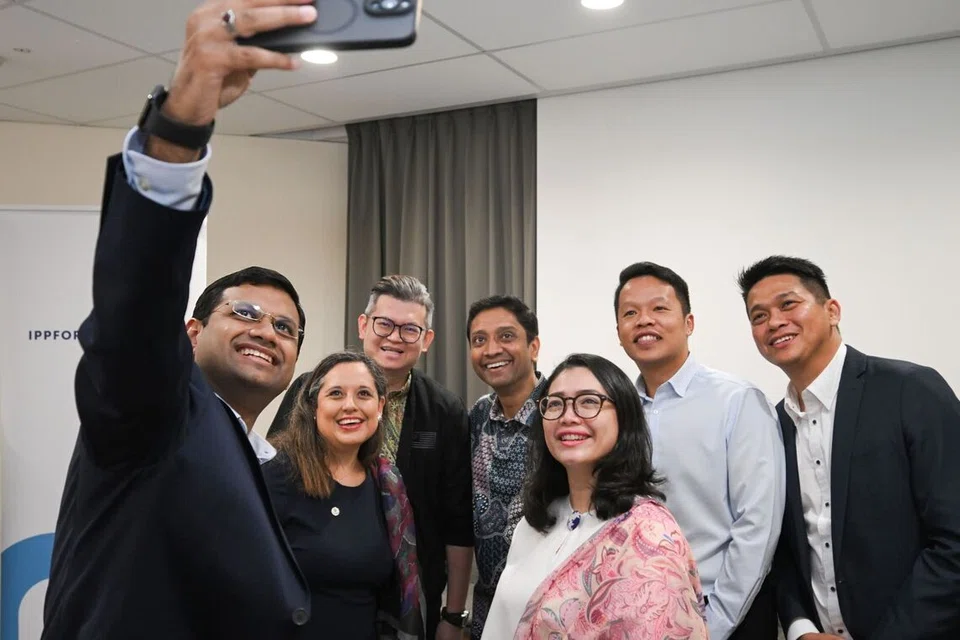
Several representatives from interfaith organisations, Dr Nazila Ghanea, the UN Special Rapporteur for freedom of religion, Mohamed Irshad, founder and president of local religious harmony organisation Roses of Peace and Dr Mathew Mathews from the National University of Singapore’s Institute of Policy Studies also participated in the event.
Thanking the regional participants for coming to learn, Mr Dinesh added that Singapore has much to learn from them as well.
Referring to migration in Western countries, particularly in Europe, he remarked that the changes in their demographic structures have a direct impact on the country’s economy.
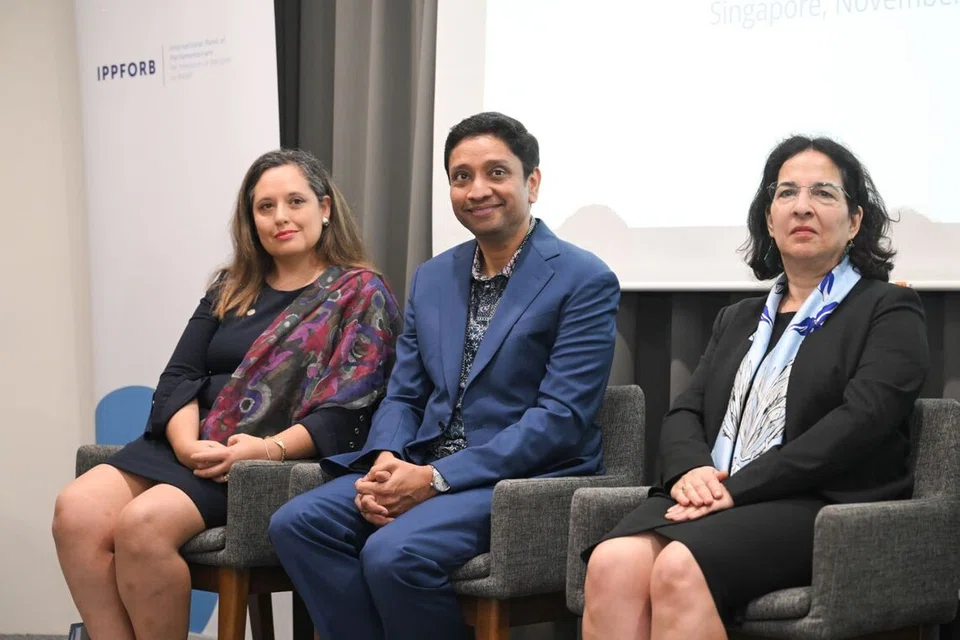
“At the end of the day, you have people who have been there longer and people who are new immigrants,” he said.
Speaking about Singapore’s racial and religious diversity, Mr Dinesh noted that, although the Chinese form the racial majority, there is no single dominant religion in the country, as religions are quite evenly spread.
He also stated that people of all religions practice their faiths and customs within a very small land mass.
“How did we turn a limitation into a strength? It started really many years ago, from 1949 when the Inter-Religious Organisation (IRO) was formed. If you think about it, it predates even modern Singapore,” said Mr Dinesh.
Mr Dinesh explained that it began with a group of people who were tired of what they saw during World War II. They decided that an interreligious organisation was the best way to reduce fear and anxieties among religions by coming together.
“What happened thereafter was the way Singapore organised itself, particularly post-independence. And that, in my mind, has made a profound difference in how our religious and racial harmony has been forged,” he said.
In addition to legislation and legal frameworks, he highlighted that social self-help groups, as well as grassroots harmony groups like the Racial and Religious Harmony Circles, are active in Singapore.
Mr Dinesh suggested that aspects of Singapore’s method of multiculturalism can be shared with other countries, and other countries might partner with Singapore to explore what more can be done together to build stronger, more cohesive societies.
“The IPPFoRB Academy is unlike any other event. We’ve held it in different countries with reported success that has led to real change in the lives of thousands of people and entire communities,” said Director of IPPFoRB Fernanda San Martin.
Agreeing, Mr Irshad, who is also a former NMP, said: “This partnership (between Roses of Peace and IPPFoRB) reflects our shared commitment to building bridges across communities and empowering leaders to champion peace and understanding”.
janark@sph.com.sg
